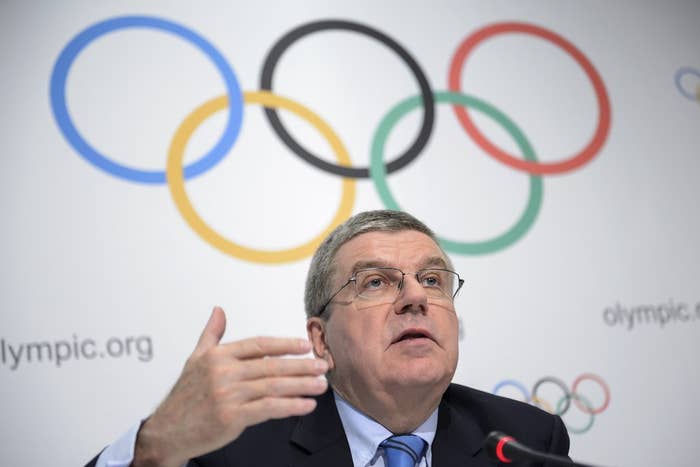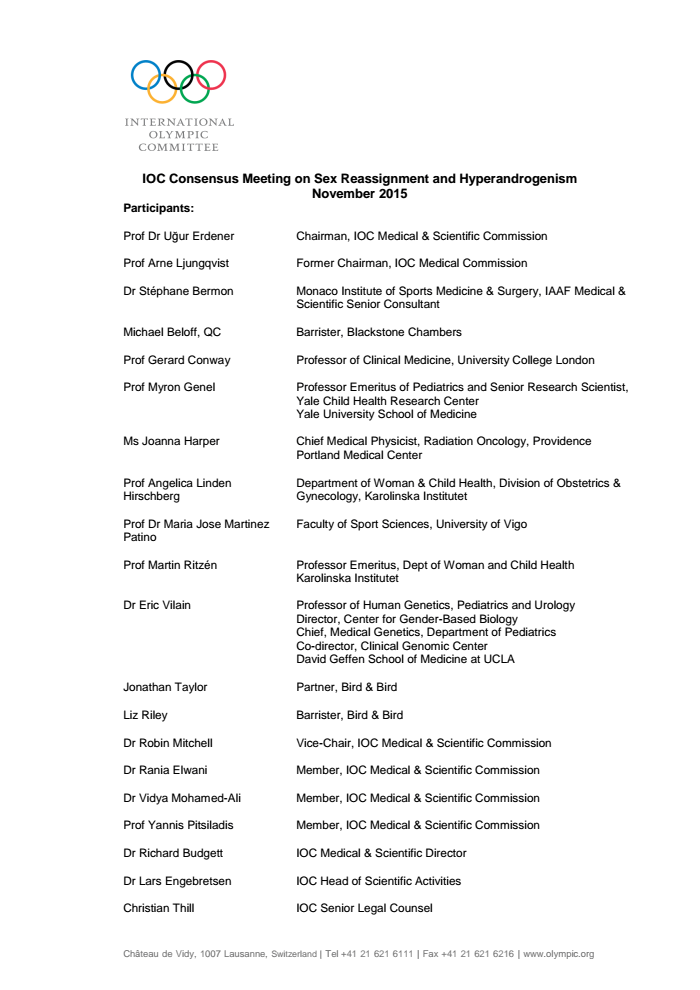
The International Olympic Committee on Monday updated its guidelines for transgender athletes, saying Olympians do not need to undergo sex reassignment surgery to compete in the games.
"It is necessary ... that trans athletes are not excluded from the opportunity to participate in sporting competition," the guideline document states. "To require surgical anatomical changes as a pre-condition to participation is not necessary to preserve fair competition and may be inconsistent with developing legislation and notions of human rights."
Previously, transgender athletes were required by the IOC to undergo sex reassignment surgery and hormone therapy to compete in Olympic events.
The IOC's new gender-specific guidelines vary greatly for trans male athletes and trans female athletes. The resulting guidelines suggest that people assigned male at birth are naturally stronger and more athletically inclined than people assigned female at birth.
"Those who transition from female to male are eligible to compete in the male category without restriction," the IOC announced.
For athletes who transition from male to female, eligibility is subject to stipulations regarding self-identification and levels of testosterone.
When an athlete identifies as female, "[t]he declaration cannot be changed, for sporting purposes, for a minimum of four years."
To become eligible, a trans female athlete "must demonstrate that her total testosterone level in serum has been below 10nmol/L for at least 12 months prior to her first competition." Testosterone levels for trans female athletes "[m]ust remain below 10 nmol/L throughout the period of desired eligibility to compete in the female category," and they "may" be tested regularly to determine testosterone levels.
The IOC document references a 2015 decision by the Court of Arbitration for Sport regarding hyperandrogenism, the presence of naturally elevated levels of testosterone in female athletes.
The court in 2015 vacated the International Association of Athletics Federation's regulations that essentially banned athletes with hyperandrogenism, saying the association didn't provide enough scientific evidence about the relationship between "enhanced testosterone levels and improved athletic performance in hyperandrogenic athletes."
In its new transgender guidelines, the IOC says the association should presenting evidence to the court "to support the reinstatement of its hyperandrogenism rules."
But, instead of banning athletes with hyperandrogenism "not eligible for female competition the athlete should be eligible to compete in male competition."

